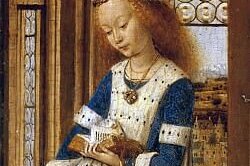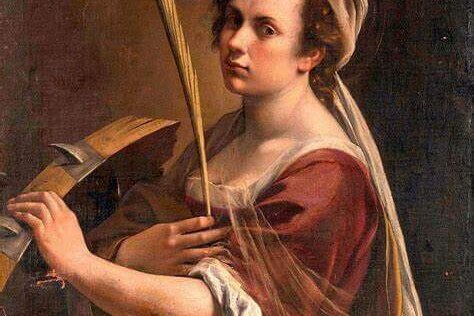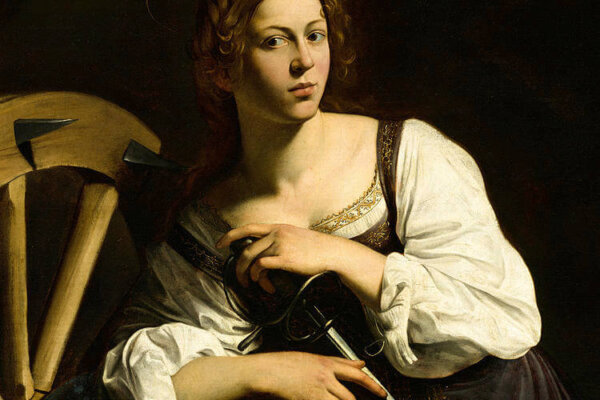
Our school is named after St Catherine of Alexandria, and we celebrate her feast day each year on 25th November.
Although there are no surviving primary sources about St Catherine, she has a rich oral history and has inspired artists for centuries, including Caravaggio, Artemisia Gentileschi and Raphael. Her principal symbol which forms our school crest is the spiked wheel, which has become known as the Catherine wheel.
What do we know about St Catherine?
Catherine lived in early Christian times and was the daughter of a wealthy pagan couple of Alexandria, Egypt. She was a very beautiful girl whose great interest was in learning. Catherine was very good at science and public speaking. She loved to study deep questions of philosophy and religion. She began to read about Christianity. Then one day she received a vision and decided to convert to Christianity.
St. Catherine was only eighteen when Emperor Maxentius began making the Christians suffer. Without fear, young Catherine told him that he was being very cruel and would be punished by God. When he spoke of the pagan gods, she very plainly showed him that they were false. Maxentius could not answer her arguments, so he sent for fifty of his best philosophers.
Once again, Catherine proved the truth of her religion. All fifty philosophers were convinced that she was right and decided to become Christians. In great anger, Maxentius punished them severely. Then, he tried to win her by offering her a queen’s crown. When Catherine refused the crown, he had her beaten and thrown into prison.
While Maxentius was away at camp, his wife and an officer were very curious to hear this amazing Christian girl speak and went to her prison cell. All who heard her knew she spoke the truth and as a result they and two hundred soldiers of the guard were converted and became Christians.
When Maxentius found out, they were all put to death. Then he ordered Catherine to be placed on a wheel full of spikes to be tortured to death. When the wheel began to spin, it suddenly snapped in two and broke.
She has always been the patroness of Christian philosophers.







